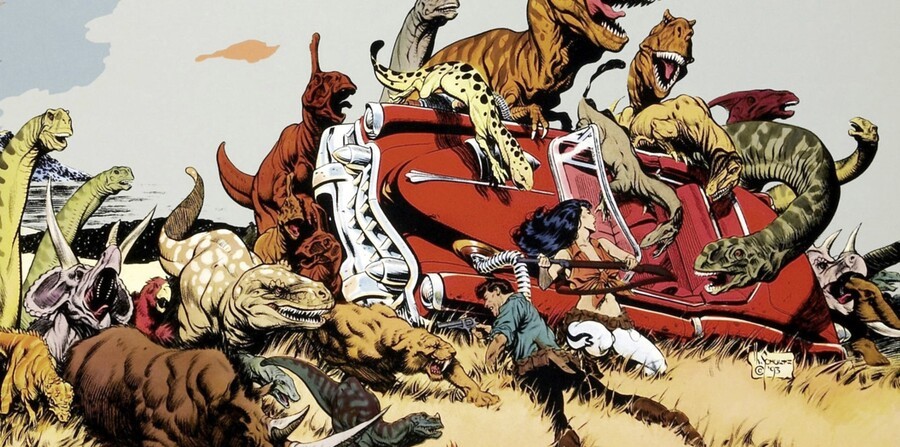
Elon Musk's name is in the headlines right now thanks to his $44 billion purchase of Twitter and his attempts to reshape the popular social media platform in his own image. However, splashing billions on websites isn't all he's famous for; companies like PayPal, Tesla and SpaceX all exist thanks to his efforts.
One thing that's not quite as well-known about Musk is that before becoming the world's richest man, he also helped make video games. It all started back in the '80s when he made a Space Invaders clone called Blastar; the code was published in a South African magazine, and Musk got $500 for his efforts.
That wasn't the end of Musk's involvement with interactive entertainment, though. He joined Rocket Science Games a few years later, a studio established in 1993 by startup entrepreneur Steve Blank (who, amongst other things, was involved in the foundation of microprocessor company Zilog and semiconductor business MIPS Computers).
It's tempting to surmise that Blank's own career in establishing companies might have influenced Musk's future, but Rocket Science Games was not a commercial success. Despite hiring famous video game designers like Brian Moriarty (Loom) and Will Harvey (The Immortal), the company closed its doors in April 1997 – but not before pumping out some decidedly average FMV titles.
The most high-profile of these flops was Loadstar: The Legend of Tully Bodine, a $3 million FMV shooter based on a script by Ron Cobb (who worked as a designer on the movies Dark Star, Star Wars, Back To The Future and The Abyss) and starring Ned Beatty (Deliverance, Superman). Like so many games of this type, it boiled down to watching some fuzzy footage (over 90 minutes were included) and then playing the shallow 'game' part.
Reviewers at the time praised the production values (GamePro even gave it 4 out of 5) but noted that the Sega CD version was hindered by the grainy video playback of the platform and that the gameplay was painfully basic, despite the grand scale of its visuals. It's unfair to apportion any of the blame at Musk's feet, however; he is merely listed as a programmer on Loadstar, credited as part of the "Ground Control" team.
Rocket Science's second game didn't fare much better. Cadillacs and Dinosaurs: The Second Cataclysm is based on the same comic book as Capcom's amazing side-scrolling fighter, but it's an entirely different game based around (you guessed it) FMV gameplay. We'd imagine the name alone fooled a few people into purchasing this rather dismal release, but its sales were reportedly low – a figure reported soon after release was 20,000 copies (the same as Loadstar), but later reports suggested that both games had, in total, sold around 8,000 units in North America.
According to PC Gamer, Musk's involvement in both of these games was fairly low-level, and it was work he carried out mostly in the evenings; by day, he was employed at Pinnacle Research Institute working on ultracapacitors. He clearly felt that video games weren't for him, as he wasn't involved in any other titles beyond Rocket Science Games (although he is given a 'special thanks' credit on Mass Effect: Andromeda).
